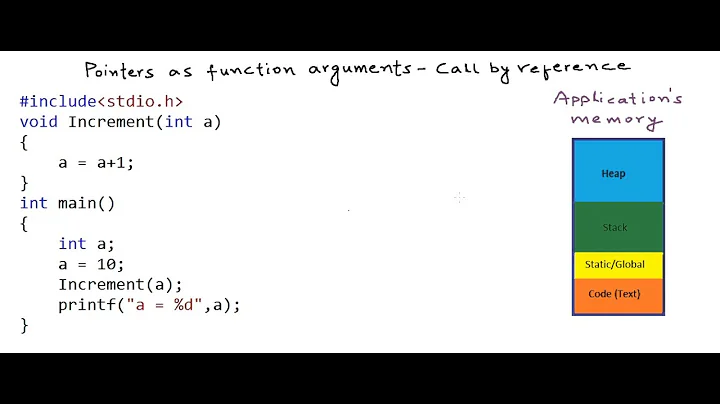How to iterate over function arguments
Solution 1
locals() may be your friend here if you call it first thing in your function.
Example 1:
>>> def fun(a, b, c):
... d = locals()
... e = d
... print e
... print locals()
...
>>> fun(1, 2, 3)
{'a': 1, 'c': 3, 'b': 2}
{'a': 1, 'c': 3, 'b': 2, 'e': {...}, 'd': {...}}
Example 2:
>>> def nones(a, b, c, d):
... arguments = locals()
... print 'The following arguments are not None: ', ', '.join(k for k, v in arguments.items() if v is not None)
...
>>> nones("Something", None, 'N', False)
The following arguments are not None: a, c, d
Answer:
>>> def foo(a, b, c):
... return ''.join(v for v in locals().values() if v is not None)
...
>>> foo('Cleese', 'Palin', None)
'CleesePalin'
Update:
'Example 1' highlights that we may have some extra work to do if the order of your arguments is important as the dict returned by locals() (or vars()) is unordered. The function above also doesn't deal with numbers very gracefully. So here are a couple of refinements:
>>> def foo(a, b, c):
... arguments = locals()
... return ''.join(str(arguments[k]) for k in sorted(arguments.keys()) if arguments[k] is not None)
...
>>> foo(None, 'Antioch', 3)
'Antioch3'
Solution 2
def func(*args):
' '.join(i if i is not None else '' for i in args)
if you're joining on an empty string, you could just do ''.join(i for i in args if i is not None)
Solution 3
You can use the inspect module and define a function like that:
import inspect
def f(a,b,c):
argspec=inspect.getargvalues(inspect.currentframe())
return argspec
f(1,2,3)
ArgInfo(args=['a', 'b', 'c'], varargs=None, keywords=None, locals={'a': 1, 'c': 3, 'b': 2})
in argspec there are all the info you need to perform any operation with argument passed.
To concatenate the string is sufficient to use the arg info received:
def f(a,b,c):
argspec=inspect.getargvalues(inspect.currentframe())
return ''.join(argspec.locals[arg] for arg in argspec.args)
For reference: http://docs.python.org/library/inspect.html#inspect.getargvalues
Solution 4
Is this perhaps what you'd like?
def foo(a, b, c):
"SilentGhost suggested the join"
' '.join(i if i is not None else '' for i in vars().values())
def bar(a,b,c):
"A very usefull method!"
print vars()
print vars().values()
Notice the use of vars(), which returns a dict.
Related videos on Youtube
jackhab
Updated on October 11, 2020Comments
-
jackhab over 3 years
I have a Python function accepting several string arguments
def foo(a, b, c):and concatenating them in a string. I want to iterate over all function arguments to check they are not None. How it can be done? Is there a quick way to convert None to ""?Thanks.
-
jackhab about 14 yearsWhat if all the arguments are explicitly declared? Like in def foo(a, b, c):
-
SilentGhost about 14 years@Jack: re-define your function. That would be the easiest option. If you have only few arguments, you could put them into a tuple.
-
SilentGhost about 14 years@Jack: why do you think so? it's idiomatic Python. Do you use your arguments individually? If you you could easily unpack
argsinto variables with appropriate names. -
extraneon about 14 years@Jack I agree with you there. You could explicitly name your arguments, and build a list of those args before joining (args = [a,b,c]). Perhaps a keyword construct is also a solution; you could then get the values from the kwargs dict. Keyword default values can however have unexpected behavior.
-
jackhab about 14 years@extraneon I started with Python two days ago and I'm not sure I understand what you mean.
-
jackhab about 14 yearsI thought the arguments passed to function in some sort of dictionary and this dictionary can be accessed via some built-in attribute or something. EDIT: Oh! just found it - it's called locals()
-
SilentGhost about 14 years@Jack: it's not clear what would be the best option for you because you're not showing us how exactly you're using those arguments. Are you using the
a,bandcin any other way? -
 John La Rooy about 14 yearsI think
John La Rooy about 14 yearsI thinkNonemeans the python objectNonenot the literal string"None" -
 johnsyweb about 14 yearsFWIW, I think that
johnsyweb about 14 yearsFWIW, I think that*argsis the way to go here... what if you want to concatenate sixteen strings? I just wanted to show that it was possible in Python using the function signature provided :-) -
extraneon about 14 years@Jack def func(a,b,c): args=[a,b,c] ' '.join(i if i is not None else '' for i in args)
-
extraneon about 14 yearsin stead of locals you can also use vars().
-
 johnsyweb about 14 years@extraneon Thanks for the tip.
johnsyweb about 14 years@extraneon Thanks for the tip.locals()seems to behave the same asvars()with no arguments in this case. -
Darren Ringer almost 8 yearsFound this very useful along with a function that converts underscore-separated strings into camelcase ones... can save a lot of tedious boilerplate code when instantiating object attributes from the init parameters. I'm still waiting to get myself into trouble with this style of programming :P
-
 Stevoisiak over 6 yearsTo simplify the example, it may help to split up the statements onto separate lines. (ie:
Stevoisiak over 6 yearsTo simplify the example, it may help to split up the statements onto separate lines. (ie:for k in sorted(arguments.keys()):if arguments[k] is not None:print(str(arguments[k]))) -
Darren Ringer over 6 years@StevenVascellaro I saw you had asked for that function I mentioned above; not sure if you still want to see it (and it isn't that great anyway) but it is found here: github.com/dwringer/misc/blob/master/utils.py#L438-L465
-
hugovdberg almost 4 yearsFor joining the string
*argsmight be cleaner, but I think usinglocalsis very useful if you want the keywords as well. For example to compile parameters to an URL from keyword arguments, of which several might be optional. This way you can explicitly state which parameters are available, and at the same time only relay the provided parameters to the URL.



![What does int argc, char* argv[] mean?](https://i.ytimg.com/vi/aP1ijjeZc24/hq720.jpg?sqp=-oaymwEcCNAFEJQDSFXyq4qpAw4IARUAAIhCGAFwAcABBg==&rs=AOn4CLCPbrX1eyXpGbAsVHFjoR3TSoFcyQ)






